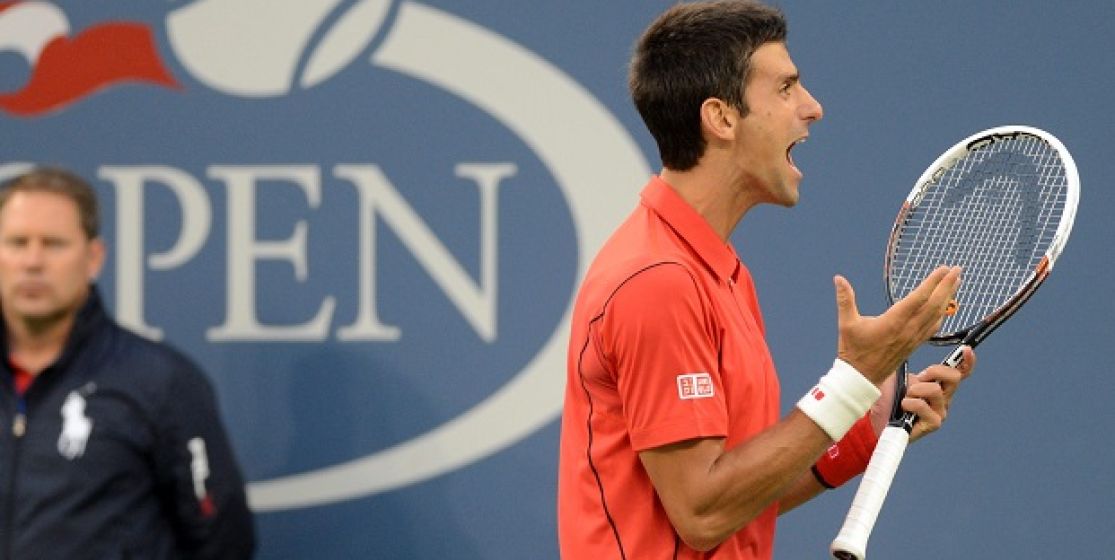Tennis is a talkative sport. A sport where some wear plenty of saliva between two points (to lecture themselves usually). But why this need to talk to themselves in front of thousands of strangers and millions of TV viewers?
« No athletes talk to themselves like tennis players. Pitchers, golfers, goalkeepers, they mutter to themselves, but tennis players talk to themselves—and answer. Tennis players look like lunatics in a public square.» At first sight, Andre Agassi seems to be an adult of sound mind. But the American tennis legend has noticed a characteristic in his own sport: the inclination that players have to lecture themselves out loud. If Roger Federer has become silent as the grave after an early career spent smashing racquets and vituperating in Swiss-German, others have never ceased to be chatterboxes. So, a man like Gilles Simon is even chattier than a Woody Allen film, the kind of person to self-comment each of his points.
But where does this "madness" as described by Agassi come from? A trained psychologist, Makis Chamalidis has been working for years with the French Tennis Federation (FFT) and puts forward the downtimes, a specificity of tennis, to explain this phenomenon: "After each point, you have 20 to 25 seconds where there isn’t much happening. It’s quite normal to talk to yourself then. You have things to deal with, you need to analyse what happened or evacuate your frustration. There are no such breaks in other sports, or an external person like a coach is involved." And this time alone, many occupy it with a monologue. Julien Boutter did it for a while. « I used to talk to myself a lot at the beginning of my career, until I realized that it was a waste of time and energy, said the former world number 46th. But it took me a long time and unfortunately for me, it happened quite late. There is no such things as chance, it’s from then that I got my best results.»
Create a routine rather than talk
But talking doesn’t mean winning. "The majority of players don't talk much when things are going well," according to John Paul Loth. For the former captain of France's Davis Cup by BNP Paribas team, talking would mostly be an sign of weakness and helplessness: "When things go wrong, the players think that talking, complaining, will bring them something when it’s just the opposite." Julien Boutter confirms and details. "For me it was always a waste of energy. It shows your opponent that you're not at peace with yourself, it gives him indications, analyses the current director of the Open de Moselle. It’s a kind of headlong rush. Very often, when the player talks to himself, what he says is offset from the reality of the game. You put the blame on the wrong problem. You say things like "I don't feel the ball'' or ''My forehand sucks,'' it doesn't help playing a good tennis.»
In 1994, an American study conducted on juniors showed that talking negatively increased the chances of playing badly. However, a tennis player tends to be self-deprecating when he talks to himself. "Marat Safin wasted half of his career because of it", says Boutter. Should we then try to gag a player too focused on the negative language, as did the father and coach of Chris Evert at the beginning of her career (with the success that we know)? Makis Chamalidis doesn't think that it's a good idea: "We cannot force a player to stop talking. If I tell you not to think about the colour red, you're going to think about the colour red." The psychologist prefers to recommend working on oneself to avoid this mental dispersion: "Mental training can install a routine between two points. This routine will symbolically allow the player to think and focus on the next point. That's why some players always do the same during this 20 seconds break. Whether they've won or lost the previous point." For the co-author of champion in the head, this work which may seem mechanical differentiates the best of "those who can’t control their emotions." Chamalidis cites the example of the legendary habit of Pete Sampras: "When he looks at his strings, it’s not a superstition; it’s a mental trick to make sense of what he must do and move to the next point." At the risk of looking like a fool. But a fool who wins in the end.






